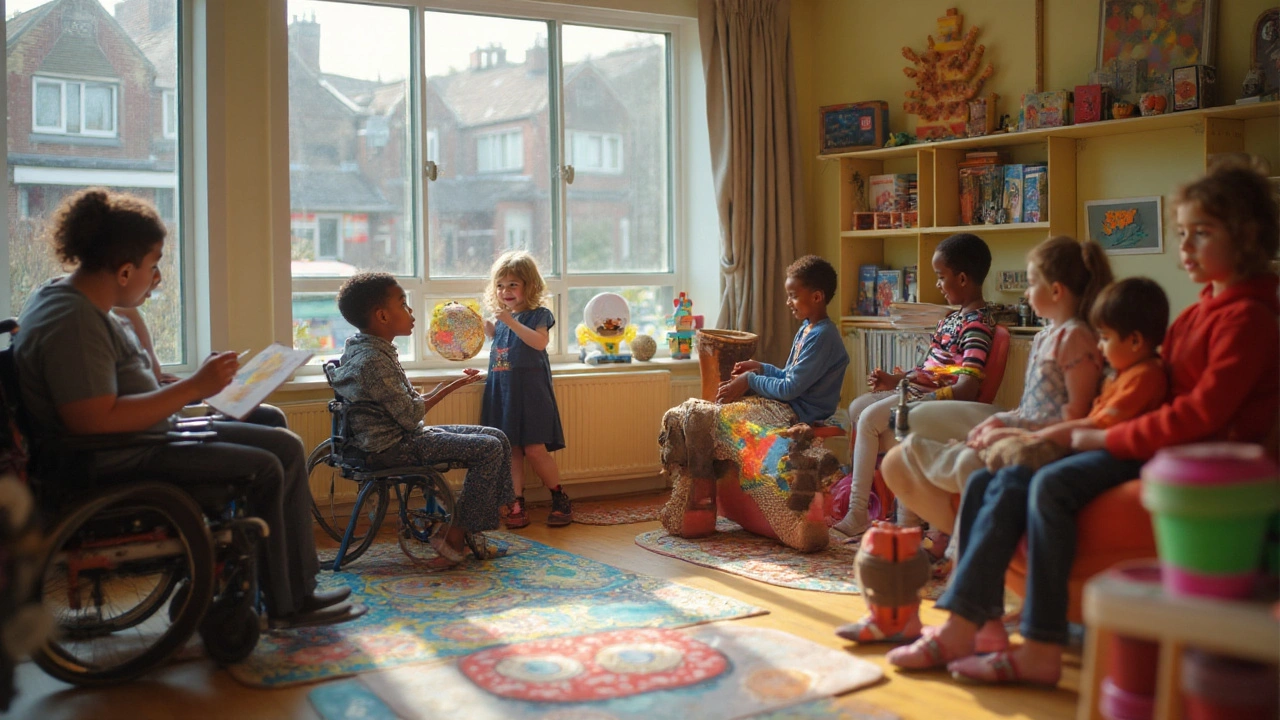Child Development Made Simple: Everyday Actions for Stronger, Healthier Kids
Ever wonder why some kids seem to hit milestones effortlessly while others lag a bit? The good news is you can steer the ship with tiny, daily moves. From the meals you serve to the games you play, each choice nudges a child's brain, body, and emotions toward healthy growth.
Fuel Their Growing Bodies and Brains
Nutrition isn’t just about avoiding junk—it's the foundation for brain wiring and muscle building. Aim for a plate that mixes protein (think eggs, beans, lean meat), colorful veggies, whole grains, and a serving of fruit. A quick tip: add a handful of berries to breakfast oatmeal for antioxidants that support memory.
Kids love routines, so set snack times that are both fun and balanced. Pair a small apple with a spoonful of peanut butter for protein, or offer carrot sticks with hummus instead of chips. These combos keep blood sugar steady, which means fewer mood swings and more focus during school.
Play, Talk, and Explore – The Triple‑Boost for Development
Playtime isn’t just fun; it’s a powerhouse for motor skills and social learning. Simple activities like building a block tower, drawing with crayons, or chasing a ball improve coordination and problem‑solving. Let your child lead the play, then join in for a few minutes to model sharing and turn‑taking.
Language skills blossom when you talk back and forth. Narrate daily chores—"Now we’re washing hands, so the germs go away"—and ask open‑ended questions like, "What do you think will happen next?" This sparks curiosity and helps kids practice sentence building.
Exploration outdoors adds another layer. A 20‑minute walk in the park introduces fresh air, natural light, and a chance to notice insects, leaves, and clouds. Those observations fuel scientific thinking and boost mood thanks to Vitamin D.
Consistency is key. Keep a simple checklist of nutrition, play, and conversation goals for each week. When you tick off items, you’ll see progress without feeling overwhelmed.
Remember, every child develops at their own pace. If you notice delays in walking, speech, or social interaction, a quick chat with a pediatrician can pinpoint support early. Early intervention usually means quicker gains.
At Health for All Democracy, we believe health knowledge belongs to everyone. Use these easy steps to give your child a solid start, and feel confident that you’re part of a broader movement for accessible, democratic wellness.
Ready to put these ideas into action? Grab a grocery list, set up a play corner, and start chatting about the world around you. Small changes today create big wins for your child's future.

